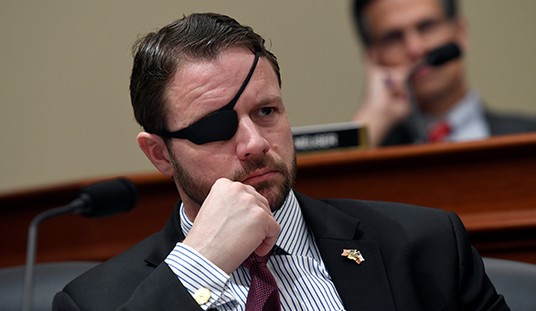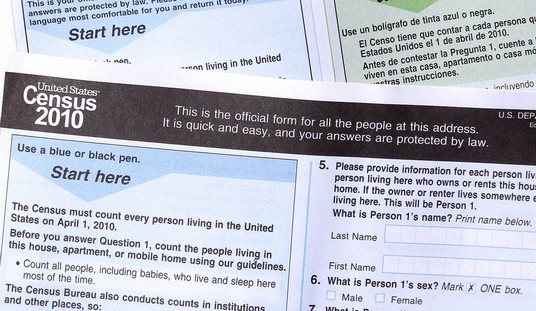I couldn’t resist that low-rent parody of Thomas Wolfe’s famous short story for my post on the depressing state of affairs at Brooklyn College, one of our nation’s most esteemed public institutions of higher learning. Of course, I wasn’t referring to “red” as in red state, but “red” in the way we used to mean it – and even that is obviously an exaggeration. What we are dealing with at Brooklyn – and so many other colleges and universities today – is an ideological hardening of the arteries so rigid it threatens the ability to think. This naturally creates a “trickle down” into our high schools and junior highs, only made worse by the National Association for Teacher Accreditation. Here’s history professor K. C. Johnson on how this works:
The program at my own institution, Brooklyn College, exemplifies how application of NCATE’s new approach can easily be used to screen out potential public school teachers who hold undesirable political beliefs. Brooklyn’s education faculty, which assumes as fact that “an education centered on social justice prepares the highest quality of future teachers,” recently launched a pilot initiative to assess all education students on whether they are “knowledgeable about, sensitive to and responsive to issues of diversity and social justice as these influence curriculum and pedagogy, school culture, relationships with colleagues and members of the school community, and candidates’ analysis of student work and behavior.”
At the undergraduate level, these high-sounding principles have been translated into practice through a required class called “Language and Literacy Development in Secondary Education.” According to numerous students, the course’s instructor demanded that they recognize “white English” as the “oppressors’ language.” Without explanation, the class spent its session before Election Day screening Michael Moore’s Fahrenheit 9/11. When several students complained to the professor about the course’s politicized content, they were informed that their previous education had left them “brainwashed” on matters relating to race and social justice.
Troubled by this response, at least five students filed written complaints with the department chair last December. They received no formal reply, but soon discovered that their coming forward had negative consequences. One senior was told to leave Brooklyn and take an equivalent course at a community college. Two other students were accused of violating the college’s “academic integrity” policy and refused permission to bring a witness, a tape recorder, or an attorney to a meeting with the dean of undergraduate studies to discuss the allegation. Despite the unseemly nature of retaliating against student whistleblowers, Brooklyn’s overall manner of assessing commitment to “social justice” conforms to NCATE’s recommendations, previewing what we can expect as other education programs more aggressively scrutinize their students’ “dispositions” on the matter.
Must prospective public school teachers accept a professor’s argument that “white English” is the “oppressors’ language” in order to enter the profession? In our ideologically imbalanced academic climate, the combination of dispositions theory and the new NCATE guidelines risk producing a new generation of educators certified not because they mastered their subject but because they expressed fealty to the professoriate’s conception of “social justice.”
There’s more on what’s going at Brooklyn College from the NY Sun:
The sociology department at Brooklyn College earlier this month elected as its chairman one Timothy Shortell. That means that Professor Shortell will have an advisory role, and thus a bully pulpit, to pronounce on every candidate up for tenure at the college, which is part of the City University of New York.
Readers of these columns may recall that Mr. Shortell was in the news back in 2003 for having written and published an article asserting that “those who are religious are incapable of moral action” and describing the faithful as “moral retards.” Wrote Mr. Shortell, “Can there be any doubt that humanity would be better off without religion? Everyone who appreciates the good, the true and the beautiful has a duty to challenge this social poison at every opportunity. It is not enough to be irreligious; we must use our critique to expose religion for what it is: sanctimonious nonsense.”
For the record, I’m an agnostic, but Mr. Shortell sounds like an idiot to me. [I guess he’s never read St. Anselm.-ed. Or Lao Tse.]
MEANWHILE IN CALIFORNIA: Post 9/11, my home state’s Board of Eduation has formally approved the following teaching method on the recommendation of Islamic organizations:
One learning activity, designed to prepare students for the
lessons on the Arab-Israeli conflict, divides students into two
groups, one called Jeds and the other Pads, representing Jews
and Palestinians in the early twentieth century. The teacher is
told to arrange the furniture in the classroom so that the Pads
are crowded in a small space into which the Jeds demand to
enter. Assuming the role of “the Great Power,” the teacher is
told to favor the Jeds’ arguments and ignore the Pads’ seemingly
reasonable opposition to the Jeds’ entry. The obvious purpose of
the activity is to elicit students’ feelings about the unfair treatmentaccorded to the Pads and pre-dispose them to be sympathetic toone side and negative to the other before they have learned anything about the actual conflict in the Middle East.
No comment. (ht: Catherine Johnson)









Join the conversation as a VIP Member